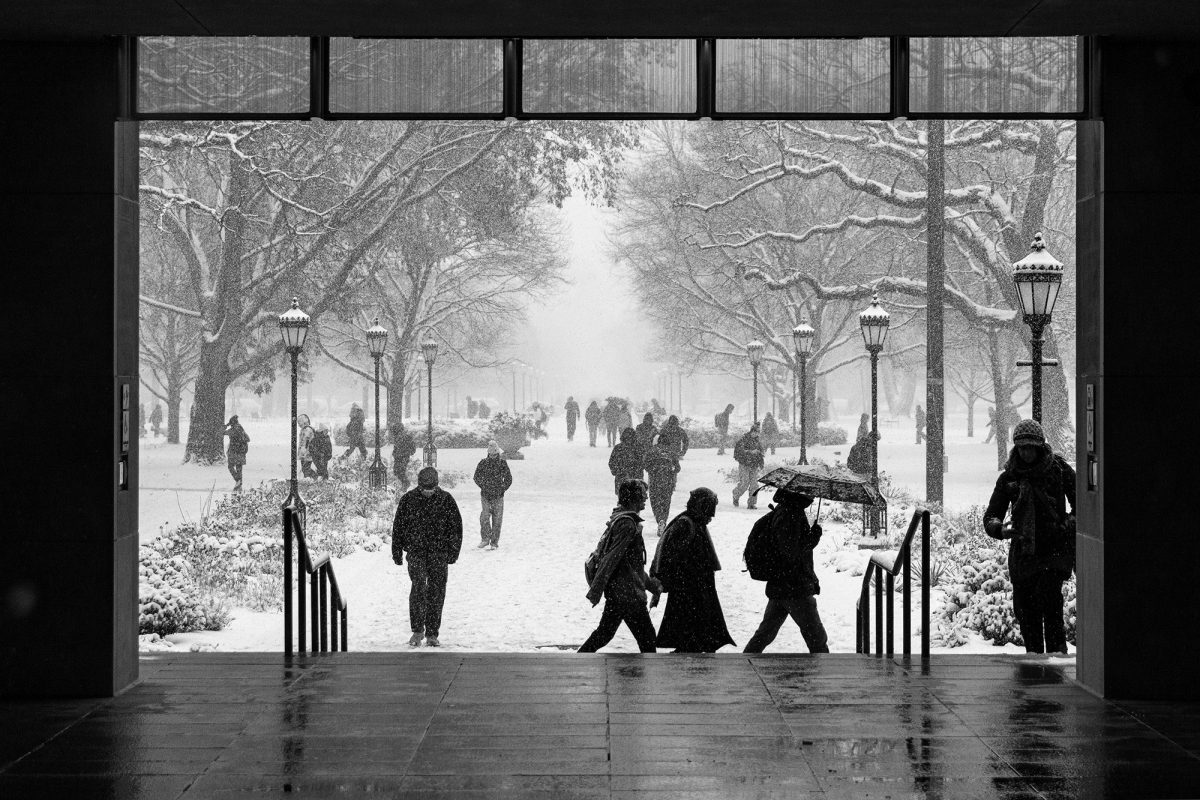The University of Chicago Political Union (UCPU) hosted a debate on Tuesday night called “Should the U.S. Have Dropped the Bomb?”
The debate was the latest in a string of events commemorating the 75th anniversary of the first self-sustained nuclear reaction at the University on December 2, 1942.
The debate consisted of two panels, one of which argued in support of the use of the bomb, while the other argued in opposition. Third-year Davis Larkin, one of two co-presidents of the UCPU, argued in support, though his views do not express the views of the UCPU as a whole. He and Matthew Sparks debated Xavier Worsley and Erin Hagood, who formed the opposition.
“I think it’s fairly easy to argue that the war itself was just,” said Larkin. “It’s very clear that there needed to be a major extra push in order to cause Japan to surrender.”
The supporting panel argued that, though the atomic bombs killed approximately 350,000 people, the cost would have been much higher had the U.S. gone ahead with Operation Downfall, a full-scale invasion of Japan’s mainland.
“It would have been several times larger than the invasion on D-Day,” Matthew Sparks said. “Considering circumstances at the time and what the U.S. did and didn’t know, it was the most humane option.”
The opposition argued not only that the bombings were unjustified, but also that they were not necessary.
“The Potsdam ultimatum, in which we threatened Japan with utter and total destruction if they didn’t give this unconditional surrender, was poorly handled,” said first-year Xavier Worsley, a panelist against the bombings. “Japan was in fact already close to surrender and collapse.”
He argued that the decision to drop the bombs was likely influenced by motives outside of the desire for a quick surrender.
“There were racial implications in the use of the bomb,” he said. “At the end of the war the actual terms of surrender turned out to be along the same lines as the ones that Japan had initially demanded.”
Worsley went on to question the accuracy of the data provided by the supporting panel, which claimed that the invasion would have been catastrophic to both the United States and Japan had it been carried out.
“Regarding the estimations on how many people would be killed, there were several wildly different ones,” Worsley said. “General MacArthur, using Okinawa as a basis, estimated that only 40,000 U.S. military casualties would occur, as opposed to 1.4 million.”
“There’s a very important caveat in what was just said,” Sparks said during his rebuttal. “MacArthur said 20,000 casualties in the first 30 days, not overall.”
Fourth-year Erin Hagood, the other member of the opposition, argued from a Marxist perspective that the entirety of World War Two was unjustified, not just the dropping of the bombs.
“I will contend that it is not the facts that are at stake in this debate, but ideology,” she said in her opening statement. “I believe that the possibility of World War Two could have been avoided.”
She stated that the the issues that plagued the 20th century, such as fascism and warfare, were the result of the failed socialist revolutions of the 19th century. She argued that the ideologies behind the major players in World War One had outlived their usefulness.
“It is a miracle that the ideals of the American Revolution survived the dropping of the atomic bomb.”
At the end of the debate, audience members were allowed to ask the panelists questions on topics related to the debate. Afterward, they were invited to stay and talk to individual debaters.
The UCPU regularly hosts debates on a wide range of political topics, which they announce on their Facebook page.







